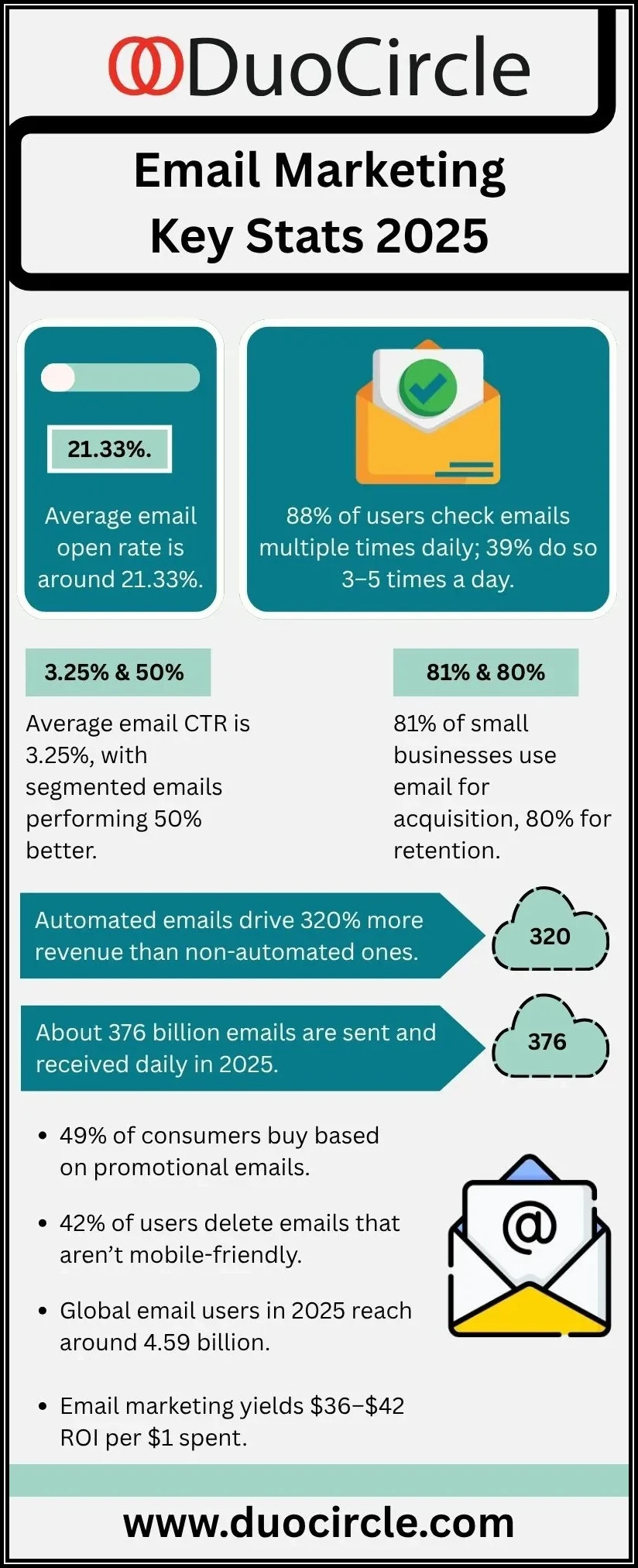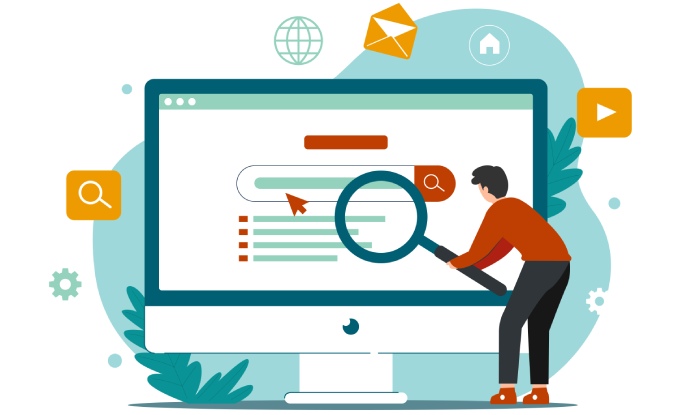Email relay services play a pivotal role in facilitating seamless email delivery within modern business communication frameworks. At their core, these services function as intermediaries—SMTP relays—that channel outbound email messages from a sender’s email client or mail server to the recipient’s mailbox provider via a secure pathway. Acting as advanced mail transfer agents (MTAs), email relay services manage complex email routing, ensuring that emails pass efficiently through various email gateways and SMTP servers.
Essentially, an email relay service receives email from an originating SMTP server, places the message into an email queue for orderly processing, and forwards it to the destination server using standardized email protocols such as SMTP, POP3, or IMAP. This mechanism supports both transactional email (order confirmations, password resets) and bulk email distributions such as email marketing campaigns, ensuring timely deliverability and reduced latency.
Top-tier cloud email services like SendGrid, Amazon SES, and Mailgun exemplify email sending services tailored to enterprise requirements, integrating email APIs for programmatic sending and enabling robust email queue management, email bounce handling, and email monitoring. These relay services also provide comprehensive email analytics that inform marketers and IT teams about campaign performance and email health metrics.
Evolution of Email Relay Services in the Digital Era
The digital era has witnessed significant evolution in email relay services driven by rising email volumes, complex compliance requirements, and increasing security challenges. Traditionally, organizations relied on on-premises MTAs such as Postfix, Exim, or Microsoft Exchange servers to route outbound and inbound email. However, these setups often struggled with scalability, email throttling controls, and maintaining high deliverability rates amid growing email marketing demands.
With the advent of cloud email hosting solutions like Google Workspace, Zoho Mail, and Microsoft Exchange Online, and specialized SMTP relay providers such as SparkPost, SMTP2GO, Mandrill, and Elastic Email, businesses gained access to scalable, secure, and reliable email delivery platforms. These services incorporate modern features like email domain verification, DKIM (DomainKeys Identified Mail), SPF (Sender Policy Framework), and DMARC (Domain-based Message Authentication, Reporting & Conformance) for advanced email authentication, which significantly bolster defenses against spoofing and phishing attacks.
Furthermore, email relay services have incorporated sophisticated email spam filtering techniques, IP reputation management, and email blacklist/whitelist enforcement, ensuring emails bypass spam filters and reach intended inboxes. Enhanced email logging and header analysis tools provide IT administrators insights for troubleshooting delivery delays or security incidents. TLS for email encryption has become standard practice, safeguarding message content in transit and maintaining email compliance mandates dictated by regulations such as GDPR and HIPAA.
How Email Relay Services Integrate with Business Email Systems
Integration of email relay services into existing business email environments is streamlined through standardized SMTP protocols and robust email APIs. Organizations utilizing email clients like Microsoft Outlook, Apple Mail, Gmail, or ProtonMail often interface with relay services configured as their outbound SMTP servers or message transfer agents to send email externally.
For inbound email, relay services can operate via email gateways that filter and scan incoming messages before delivery to the recipient’s mailbox provider, such as Yahoo Mail or Gmail‘s servers. Enterprises frequently deploy hybrid solutions that combine cloud email service security layers from Proofpoint, Barracuda Networks, or Cisco Email Security with their native email hosting platforms like SmarterMail or Axigen to guarantee holistic email security and compliance.
Email relay services offer versatility by managing rate limiting and email throttling to avoid IP blacklisting, essential when dispatching bulk email campaigns through platforms such as Sendinblue or Mailjet. Through email queue management systems, relays regulate the volume and frequency of outbound emails—adaptive controls critical to preserving IP reputation and mitigating bounce rates.
Moreover, relay services provide email bounce handling features that automatically process and categorize delivery failures—hard bounces, soft bounces, or spam traps—to refine contact lists and optimize future email campaigns. This integration facilitates continuous email reputation improvement, which directly correlates to higher deliverability and enhanced business communication efficacy.
Enhancing Email Deliverability and Reducing Bounce Rates
Deliverability remains a paramount concern for businesses relying on email to reach customers and partners. Email relay services substantially improve inbox placement rates by employing sophisticated email authentication protocols including SPF, DKIM, and DMARC. These protocols authenticate sender identities and verify legitimate message sources, reducing the risk of email spoofing and domain impersonation, which often lead to emails being blocked or flagged as spam.
In addition to authentication, relay services implement comprehensive email spam filtering and consistently monitor IP and domain reputation. Providers like Pepipost and Postmark utilize real-time email analytics and reputation scoring to preemptively prevent emails from landing on email blacklists and to whitelist verified email streams.
Email header analysis plays a critical role in deliverability by revealing routing anomalies or misconfigurations that can cause emails to be rejected by mailbox providers. Relay services actively manage email queue operations, applying rate limiting and email throttling where necessary to balance high-volume senders with recipient server policies.
Advanced email bounce handling workflows not only categorize undelivered emails but also employ feedback loops to reconcile complaints with marketing strategies. Consequently, businesses can refine their mailing lists, improve email campaign targeting, and maintain compliance with email security standards and regulations.
Security Features Offered by Email Relay Services
Email relay services are integral to enforcing comprehensive email security strategies, combating threats that jeopardize business communications. Key security features include email encryption, both in transit and at rest, often leveraging TLS for email to secure message transfers between SMTP servers and mail transfer agents. Encryption prevents unauthorized interception and preserves email confidentiality—a necessity when exchanging sensitive corporate data.
Robust email authentication, through DKIM, SPF, and DMARC, mitigates email spoofing attempts and ensures that phishing and fraudulent emails are blocked or quarantined by inbound email gateways. Relay services often incorporate email spam filtering technologies sourced from industry leaders such as Symantec Email Security.cloud and Barracuda Networks, which employ signature-based detection, heuristic analysis, and machine learning algorithms to identify and isolate malicious content.
SMTP authentication enforces rigorous access controls, verifying the credentials of outgoing email senders and preventing unauthorized use of SMTP relays. Email monitoring tools within these services provide real-time alerting on suspicious activities, suspicious email header anomalies, and phishing attempts.
From a compliance perspective, relay services ensure adherence to regulatory mandates by preserving detailed email logging for audits, enforcing secure mailbox provider policies, and providing retention policies compatible with corporate governance. Integration with enterprise email hosting solutions such as MailEnable, hMailServer, or Axigen further consolidates email security protocols and facilitates centralized management of email domain verification and IP reputation.
Through these multi-layered security features, email relay services empower businesses to maintain trusted communication channels, safeguard brand integrity, and enhance overall email security posture in an increasingly perilous digital landscape.
The Importance of Email Relay Services in Large-scale Email Campaigns
In the context of extensive email marketing or transactional email campaigns, leveraging an email relay service becomes indispensable. Large enterprises often depend on SMTP relay services provided by cloud email service providers such as SendGrid, Amazon SES, and Mailgun to facilitate vast volumes of outbound email efficiently. These services act as an advanced mail transfer agent (MTA), managing email queues and orchestrating email routing through SMTP servers to ensure reliable email delivery across diverse mailbox providers including Gmail, Yahoo Mail, and Microsoft Exchange.
By outsourcing email relay to dedicated SMTP relays, organizations bypass common pitfalls associated with running their own email servers — such as bandwidth constraints, IP reputation management, and email throttling. These relay services implement sophisticated outbound email monitoring, email spam filtering, and email authentication protocols like DKIM, SPF, and DMARC to improve deliverability and mitigate risks of email spoofing and blacklist listings. Sophisticated email queue management and rate limiting capabilities help maintain optimal sending speeds without triggering ISP rate restrictions or damaging the sender’s IP reputation.
Compliance and Regulatory Considerations in Email Relay Use
Using an email relay service also involves navigating compliance and regulatory frameworks pertinent to email communication. Email compliance standards mandate that outbound bulk email strictly adheres to anti-spam laws such as CAN-SPAM, GDPR, and CASL, requiring explicit consent, opt-out mechanisms, and detailed logging for transactional email and email campaigns alike.
Most leading email sending services such as Postmark, SparkPost, and SMTP2GO implement comprehensive email logging and email header analysis features, helping organizations maintain audit trails required for regulatory adherence. Additionally, email encryption, including Transport Layer Security (TLS) for email, is crucial for securing inbound and outbound email to meet ISO standards and protect sensitive data during email transit via email gateways. These measures enhance the overall email security posture while ensuring compliance with mailbox providers’ policies and legal mandates.
Cost Efficiency and Resource Management Benefits
One of the most significant advantages of employing an SMTP relay or cloud email service for handling email forwarding and bulk email is its impact on cost and resource allocation. Managing an on-premise email server such as Postfix, Exim, or Qmail demands continuous investments in infrastructure, maintenance, firmware updates, and skilled IT personnel to handle email bounce handling, IP reputation monitoring, and spam filtering.
Email APIs offered by services like Mailjet, Sendinblue, and Pepipost simplify integration and reduce development time, allowing businesses to scale email campaigns quickly without a proportional rise in operational complexity or cost. Since these providers operate on economies of scale, customers benefit from optimized email deliverability and robust email queue management at a fraction of the cost compared to running a proprietary mail transfer agent or message transfer agent environment. The elasticity of resources inherent in cloud email services further supports dynamic scaling, ensuring email campaigns meet performance expectations without overloading local SMTP servers.
Comparing Popular Email Relay Service Providers
The email relay market is competitive, with specialized providers addressing different needs.
- DuoCircle offers secure, fully authenticated email relay services with integrated SPF, DKIM, and DMARC support, ensuring high deliverability and robust email protection for both transactional and bulk email campaigns.
- SendGrid is renowned for its robust email API, detailed email analytics, and flexible SMTP relay infrastructure, ideal for large-scale email campaigns with real-time monitoring and bounce handling.
- Amazon SES offers cost-effective and scalable email delivery, with strong email domain verification and email compliance features, making it a favorite for startups and enterprises alike.
- Mailgun provides advanced email sending services with built-in email spam filtering and email logging capabilities, supporting both transactional and bulk email use cases.
- Postmark excels in transactional email delivery with an emphasis on stringent email authentication, including DKIM and SPF, coupled with rapid email queue management and uptime.
- SparkPost delivers sophisticated email reputation management and deliverability tools, focusing on email analytics and email security to optimize outbound email performance.
- SMTP2GO distinguishes itself with easy integration, high deliverability rates via reliable SMTP relay, and detailed email header analysis features supporting various email protocols.
Additionally, providers such as Mandrill (by Mailchimp), Sendinblue, Pepipost, and Elastic Email offer tailored solutions featuring email marketing automation, email security best practices, and email gateway-level spam controls. When selecting an email relay service, businesses must assess parameters such as IP reputation, SMTP authentication mechanisms, rate limiting policies, and compliance support to choose the best fit for their email infrastructure.
In summary, integrating an SMTP relay service or a cloud email service provider into your email architecture enhances the ability to execute high-volume email campaigns with improved deliverability, compliance adherence, and cost efficiency. While challenges remain, innovations in email queue management, email sender reputation, and email encryption continue to evolve, making these services increasingly indispensable in modern email communication frameworks.
Future Trends: AI and Automation in Email Relay Services
The landscape of email relay services is rapidly evolving with the integration of artificial intelligence (AI) and automation technologies. AI-driven email monitoring is enhancing the detection of suspicious patterns to strengthen email security and reduce email spoofing. Intelligent email spam filtering leverages machine learning algorithms to refine inbound email categorization beyond traditional rule-based filters, enhancing deliverability by minimizing false positives and protecting mailbox providers like Gmail, Yahoo Mail, and Apple Mail from phishing attacks.
Automation is revolutionizing email queue management and email bounce handling by streamlining fallback mechanisms and retry intervals through smart rate limiting and email throttling protocols. This optimizes email delivery speeds, particularly for bulk email campaigns, without overwhelming SMTP servers or triggering IP reputation penalties. Furthermore, AI-based email header analysis offers enhanced diagnostic capabilities, assisting mail transfer agents such as Postfix, Exim, and Qmail to identify and mitigate potential email blacklist triggers more proactively.
Several cloud email services like SendGrid, Amazon SES, Mailgun, and SparkPost are pioneering AI and automation features within their email sending services and SMTP relay infrastructures, enabling businesses to maintain high deliverability rates while ensuring compliance with email authentication standards including SPF, DKIM, and DMARC. This progress not only improves transactional email reliability but also safeguards email marketing efforts by maintaining a healthy email reputation and adhering to email compliance guidelines.
Best Practices for Choosing the Right Email Relay Service for Your Business
Selecting an appropriate email relay service requires a comprehensive evaluation of your organization’s needs, particularly with respect to the volume and types of outbound email—bulk email versus transactional email. A critical factor is verifying the service’s support for reliable SMTP authentication and robust email domain verification processes that enhance trustworthiness and minimize email spoofing risks.
Evaluate the email sending service’s infrastructure, including its use of SMTP servers and mail transfer agents optimized for high deliverability. Well-established providers like Mandrill, SMTP2GO, Mailjet, and Postmark offer scalable email API integrations, which facilitate seamless email routing and effective email queue management. These features are vital for maintaining operational efficiency and preventing rate limiting imposed due to excessive message transfer agent loads.
Consider the email reputation and IP reputation management strategies adopted by the service, as continuous email monitoring for blacklist status and whitelist inclusion can dramatically affect your outbound email’s placement in recipients’ inboxes rather than spam folders. Providers integrated with security appliances and solutions from Proofpoint, Barracuda Networks, or Cisco Email Security ensure heightened email security and compliance, which is essential for businesses operating under strict regulatory frameworks.
Finally, assess the service’s capability to provide detailed email analytics, email logging, and comprehensive email bounce handling to gain actionable insights and troubleshoot delivery issues proactively. Committing to a cloud email service or hosted email relay solution that aligns with your email marketing and transactional email demands will foster sustainable communication workflows.
Measuring the Impact: Analytics and Reporting in Email Relay Services
Advanced email analytics and reporting constitute the backbone of effective email relay service management. Utilizing comprehensive email logging and delivery reports, businesses can analyze key performance indicators such as delivery rates, open rates, click-through rates, and email bounce statistics. This data empowers marketing teams to optimize email campaigns by refining audience segmentation and adjusting email forwarding paths to maximize engagement.
Modern SMTP relay providers like Elastic Email, Pepipost, and Sendinblue offer integrated dashboards that consolidate email delivery metrics and inbound email statistics. These platforms often incorporate email header analysis to diagnose email failures, detect phishing attempts, and improve email authentication adherence (DKIM, SPF, and DMARC). Detailed insights into email bounce handling assist in maintaining a high-quality recipient list, reducing the risk of blacklisting.
Email reputation analytics are also critical for monitoring IP reputation and message transfer agent health to ensure uninterrupted outbound email flow. Coupling these analytics with email security logs and compliance records fosters transparency and accountability, essential in industries with stringent data protection regulations.
Moreover, integrating email API-driven monitoring with email client feedback loops from services such as Microsoft Outlook, Gmail, and ProtonMail can help identify user behavior trends and mail protocol preferences (POP3 vs. IMAP), enhancing deliverability strategies and mitigating spam-related issues.
The Strategic Role of Email Relay Services in Business Communication
In the realm of business communication, email relay services are indispensable for ensuring reliable, secure, and efficient email delivery. By leveraging state-of-the-art email gateways, SMTP relays, and mail transfer agents, enterprises can optimize outbound email flow, maintain rigorous email authentication standards such as DKIM, SPF, and DMARC, and uphold email security against threats like email spoofing.
The integration of AI and automation in email forwarding and spam filtering processes is shaping future-proof communication infrastructures, enabling businesses to handle both bulk email and transactional email with enhanced deliverability and compliance. Selecting the right email relay service with robust email domain verification, comprehensive email bounce handling, and insightful email analytics equips organizations with the tools needed to uphold email reputation and meet complex business communication demands.
Partnering with reputable cloud email services such as Amazon SES, SendGrid, or Mailgun ensures access to scalable SMTP authentication mechanisms, sophisticated email queue management, and detailed email logging. These capabilities collectively reinforce the strategic role of email relay services as the backbone of effective, secure, and compliant business correspondence in the digital age.
FAQs
What is the difference between inbound email and outbound email in email relay services?
Inbound email refers to messages received by an email server or client, while outbound email is mail sent from your system to recipients. Email relay services primarily focus on managing outbound email delivery through SMTP servers and message transfer agents to ensure reliable routing.
How do DKIM, SPF, and DMARC impact email deliverability?
DKIM, SPF, and DMARC are email authentication protocols that validate the source of outbound email, helping prevent spoofing and phishing. Adhering to these standards improves your email reputation and reduces the likelihood of emails being marked as spam or blocked by mailbox providers.
Why is email bounce handling critical for email campaigns?
Effective email bounce handling ensures that undeliverable emails are promptly detected and removed from mailing lists. This protects the sender’s IP reputation, prevents blacklisting, and maintains high deliverability rates crucial for successful email marketing and transactional messaging.
Can AI improve email spam filtering and security?
Yes, AI enhances email spam filtering by analyzing complex patterns in inbound email traffic, distinguishing legitimate messages from spam or phishing attempts more accurately. This improves email security and reduces false positives across email gateways and client platforms.
What role does SMTP authentication play in email relay services?
SMTP authentication verifies the sender’s credentials before allowing outbound email transmission. This process prevents unauthorized use of the SMTP server, reduces spam, and strengthens the overall security and compliance posture of the email infrastructure.
How can email analytics help optimize email campaigns?
Email analytics provide insights into delivery success, open rates, click behavior, and recipient engagement. By analyzing these metrics, marketers can refine their email campaigns for better targeting, personalization, and improved deliverability outcomes.
Key Takeaways
- AI and automation are transforming email relay services by enhancing email filtering, monitoring, and queue management to improve deliverability and security.
- Choosing the right email relay service involves evaluating SMTP authentication, email domain verification, IP reputation management, and compliance capabilities.
- Comprehensive email analytics and email logging are essential for tracking the effectiveness of email campaigns and optimizing email routing and bounce handling.
- Adherence to email authentication protocols such as DKIM, SPF, and DMARC safeguards email reputation and prevents spoofing.
- Partnering with established email sending services like Amazon SES, SendGrid, or Mailgun ensures scalable, secure, and compliant email delivery solutions.








